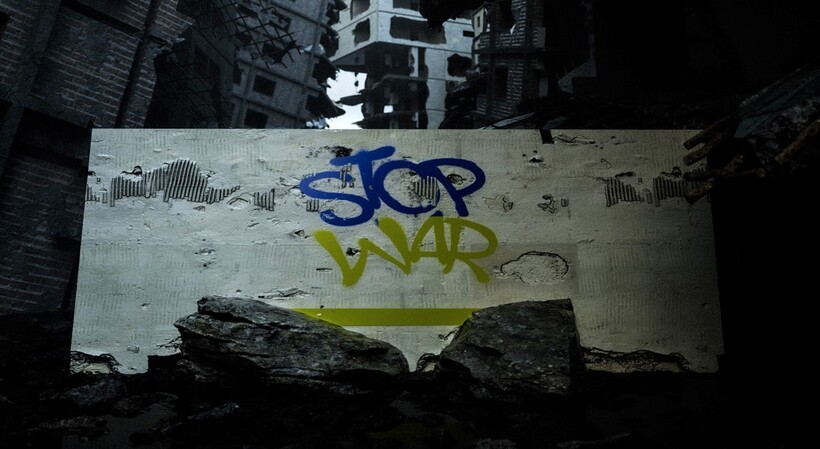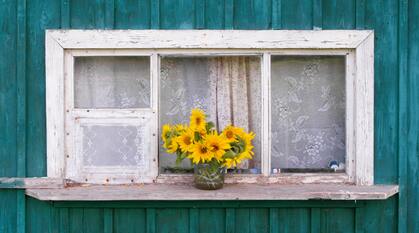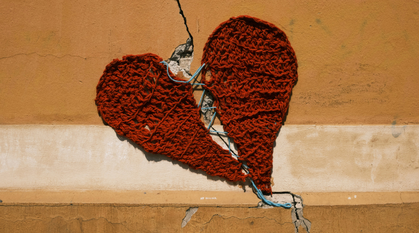Faithfully maintaining our testimony against war
On 6 March the national, representative Quaker body, Meeting for Sufferings, gathered in worship. Oliver Robertson shared this prepared ministry on the complex web of issues as major armed conflict has arisen again in Europe.

Friends, let us hold in the Light the people of Ukraine. Let us hold in the Light the people of Russia. Let us hold in the Light the people of Afghanistan. Let us hold in the Light the people of Ethiopia. Let us hold in the Light the people of Myanmar. Let us hold in the Light those affected by conflicts we have forgotten or have never even heard of, because the consequences of war will scar lives just as they are doing in Kyiv. Let us hold in the Light the people working for peace. Let us hold in the Light the people who are not.
Prayer can be a great comfort, and a powerful spur to action. But what will comfort us and what will comfort others may be very different. We need to hear the voices of people affected by today's wars, so that their lived experience can help us better understand how God is leading us in that situation. But whose voices are we hearing? Pay attention to the news you notice and the events that move you, as it can be a window into your priorities and your prejudices.
Making connections
So how do we connect with people living close to armed conflict? During worship last weekend, one meeting put up on their walls the names of Russian and Ukrainian peacemakers. Many Friends have joined the online meetings for worship of Quakers in Kyiv, and of Friends House Moscow, which has been quietly building peace since the end of the Cold War. Whose voices should we be raising up? Which stories should we be challenging?
Oftentimes taking a pacifist stance, of faithfully maintaining 'our testimony that war and the preparation for war are inconsistent with the spirit of Christ', is itself a challenge to a dominant narrative. Its value is often to remind people that there is another way, that even when war may seem the only answer there is still a choice and an alternative.
Nonviolent resistance
That alternative is not passivity. Friends and others have long experience of nonviolent resistance. People may nonviolently demonstrate, as thousands of Russians have been this past week, and being arrested for it – including children. People may refuse to support occupiers, both passively – such as not going to work – and actively – such as damaging the weapons they are forced to make. Many of the most powerful acts of nonviolent resistance manage to both challenge the oppressive action and assert the humanity of everyone involved. When Syrian protestors gave flowers and water to soldiers, it showed both that they were not a threat (so making it harder to shoot them) and meant that the soldiers could see them as people like themselves. Such actions are not about victory over an enemy, but about turning an enemy into a friend.
Upholding people
One of the ways Quakers have often acted on our conviction that we are all God's children, that everyone has value and worth, is to support the people shunned by others. This can be about practical support, and it can also be about reminding the rest of the world that these are people too.
When I think of the people who may be shunned, I think of conscientious objectors. It will take some considerable courage to be a conscientious objector to military service today in Russia and in Ukraine, though for different reasons. Quakers have long upheld the right to refuse to kill; how can we support those who are holding firm to that stance even in the most trying circumstances? Would we support COs who come to Britain? If we didn't, are we confident others would?
When I think of people being shunned, I think of those people fleeing Ukraine who are not white. People of colour in Ukraine, students from Africa, Asia, the Caribbean, have been reported to have been hampered or attacked as they tried to flee, denied support and accommodation in Ukraine and neighbouring countries because they are not Ukrainian. How can we support them, and in so doing uphold the notion that all refugees should be treated equally?
And when I think of people being shunned, I think of Russians around the world. It's probably very lonely being a Russian in a lot of countries right now. Are we helping to ensure that any outrage over the Russian government's actions does not turn into hatred of all Russians, those with no links to the government, no influence over its actions?
Opportunities for action
Many of us may be feeling, that's all well and good, sharing stories and holding in the Light and so on, but what can we actually DO? How can we stop the bloodshed or at least mitigate its impacts?
We may be able to give money, to give time, to offer hospitality, to undertake relief work, to use our resources and our riches as individuals and as communities. But the reality is that the role we can play from here in Britain, at this time of war, may be more limited than we would like. Friends may be familiar with the hourglass model of peace work, where there is space before war and after war to carry out many actions for peace, but at the time of conflict itself, where the hourglass pinches in the middle, there is very little opportunity.
There can sometimes be a temptation to think of what great thing we can do, on a par with the times past when Quakers organised the Kindertransport or advised the Russian Tsar. But those things could only happen because of groundwork being done, relationships being built, for years beforehand. Have we built the foundations we need for such work today? Has someone else, so that our role is to support? We aren't necessarily called to be amazing. We are called to be faithful.
Building the commonwealth of heaven on Earth
One of the things we can get from our faith and our long-established testimony against war is a clear vision of the world we want to see, the divine commonwealth that God is calling us to live in. Some of the greatest strides towards that world have come after very dark times. What are the changes that are needed? What work do we need to do now to clear the way for such changes to happen? What are the existing institutions and practices that need to be celebrated and maintained, even if they are imperfect? What would need to happen for Russia's neighbours not to see it as a threat? What would need to happen for a military alliance in Europe to feel unnecessary?
As Paul Parker was quoted last month, "war today is the failure of yesterday that leads to unimaginable human suffering on all sides. Imagine what could happen if we were willing to invest as much in peace as we currently do in preparing for war."
Just imagine Friends. Then let us get to work.


